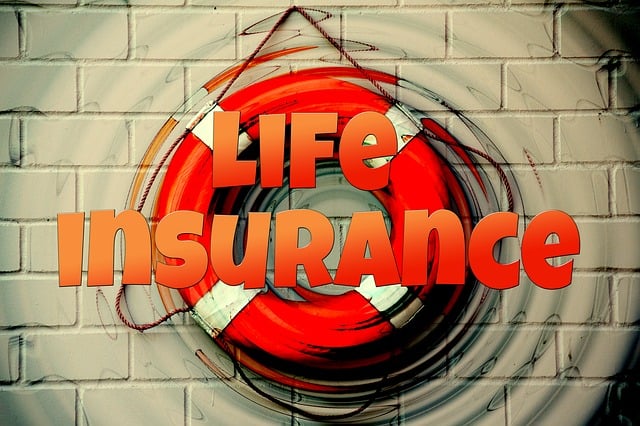Seeking the cheapest short-term insurance? Understand your unique needs, policy types, and influencing factors like duration, age, health, and coverage amount. Compare quotes from multiple insurers online, review policy details carefully, and tailor your plan accordingly. Don't underestimate these plans' value – they offer essential protections for temporary situations, helping you save money without sacrificing security. Learn from real-world examples to make informed decisions, ensuring the best value for your specific circumstances.
Looking for affordable short-term insurance coverage? Understanding when and why you need it is key to securing the cheapest rates. This comprehensive guide explores various types of short-term policies, factors impacting costs, and practical strategies to find the best deals. We debunk common misconceptions and present real-world examples, ensuring you’re armed with knowledge to navigate the market effectively. Discover how to access the cheapest short-term insurance options tailored to your needs.
- Understanding Short-Term Insurance Needs
- Types of Short-Term Insurance Policies
- Factors Influencing Cost of Short-Term Insurance
- Strategies to Find the Cheapest Short-Term Insurance
- Common Misconceptions About Short-Term Coverage
- Case Studies: Real-World Examples of Affordable Short-Term Insurance
Understanding Short-Term Insurance Needs

When considering cheapest short-term insurance, it’s crucial to first understand your specific needs and what such coverage can offer. Unlike long-term policies that focus on extensive protection and risk management for years to come, short-term insurance is designed to provide immediate and temporary relief in case of unforeseen events. This could range from medical emergencies to unexpected life changes like job transitions or relocation.
Knowing your short-term insurance needs means assessing the types of coverage required—whether health, life, property, or liability—and determining the duration for which protection is needed. By understanding these variables, individuals and families can effectively shop for the cheapest short-term insurance options that align with their unique circumstances, ensuring they receive adequate security without overspending.
Types of Short-Term Insurance Policies

When considering the cheapest short-term insurance, it’s important to understand the various policy types available. These policies are designed to provide temporary coverage for a specific period, often ranging from a few weeks to a year. The most common types include travel insurance, which covers medical emergencies and trip cancellations during travel; event insurance, offering protection against cancellations or rescheduling fees for special occasions; and short-term health insurance, providing access to healthcare services without the long-term commitments of traditional plans. Each type caters to unique needs, ensuring individuals and businesses can find tailored coverage at competitive rates.
The variety allows potential insureds to weigh their priorities and budget accordingly. Travel insurance might be ideal for those frequently exploring new destinations, while event insurance is a sensible choice for planning life events like weddings or birthdays. Short-term health insurance appeals to those seeking temporary coverage during periods of transition, such as between jobs or while on a gap year. With so many options in the market, comparing policies from various providers is key to securing the cheapest short-term insurance that aligns with your requirements.
Factors Influencing Cost of Short-Term Insurance

Several factors determine the cost of the cheapest short-term insurance, which is a popular option for individuals and businesses needing immediate coverage. One key factor is the duration of the policy; typically, shorter-term plans are more affordable as insurers face lower risks over a shorter period. Age and health history play a significant role too; younger, healthier individuals often secure better rates due to reduced claims probabilities.
Another influencer is the type of coverage required. Different policies cater to various needs, from accidents and illnesses to specific events like travel or property damage. High-risk activities or pre-existing medical conditions can increase premiums. Additionally, the amount of coverage desired affects pricing; higher deductibles usually mean lower monthly costs. Understanding these variables helps individuals shop around for the cheapest short-term insurance that meets their unique requirements.
Strategies to Find the Cheapest Short-Term Insurance

Finding the cheapest short-term insurance is a strategic process that involves multiple steps to ensure you get the best coverage for your needs at an affordable price. Start by comparing quotes from multiple insurers, as this provides a broad overview of pricing and coverage options. Utilize online platforms or tools designed for this purpose, which can streamline the comparison process significantly.
Additionally, review the policy terms and conditions carefully to understand what is covered and what exclusions apply. Consider your specific needs and risk factors; simplifying your policy by removing unnecessary add-ons could lower costs. Opting for higher deductibles also generally reduces premiums, but ensure this aligns with your financial comfort level and emergency fund capabilities. Regularly reassess your insurance requirements, as adjustments in life circumstances might warrant a change in coverage or provider to maintain the cheapest short-term insurance options.
Common Misconceptions About Short-Term Coverage

Many people often have misconceptions about cheapest short-term insurance, assuming it offers limited protection or is only suitable for temporary needs. This isn’t entirely true; short-term coverage can be a viable option for various individuals and scenarios. It provides a cost-effective solution for those who require insurance for a specific period, such as students, freelancers, or those between jobs.
Another common misconception is that short-term plans lack comprehensive benefits. However, these policies can include essential protections like liability coverage, medical expenses, and property damage. The key difference lies in the duration and scope; they are designed to meet immediate needs rather than long-term commitments. When choosing cheapest short-term insurance, it’s crucial to assess your temporary requirements and select a plan that aligns with them, ensuring you get the best value for your money.
Case Studies: Real-World Examples of Affordable Short-Term Insurance

In the quest for the cheapest short-term insurance, several case studies offer valuable insights into real-world scenarios where individuals and businesses have successfully navigated this market. For instance, a young professional moving to a new city might opt for a basic renter’s policy with a low deductible, offering comprehensive coverage for their belongings at an affordable rate. This strategy ensures they’re protected without breaking the bank.
Similarly, a small business owner launching an e-commerce venture could secure product liability insurance tailored to their startup stage, providing peace of mind against potential claims related to merchandise. By comparing quotes from various insurers and understanding the specific needs of their operation, they can acquire adequate protection at a fraction of the cost often associated with traditional long-term policies. These examples highlight how affordable short-term insurance options are accessible and adaptable, catering to diverse needs without compromising on security.







